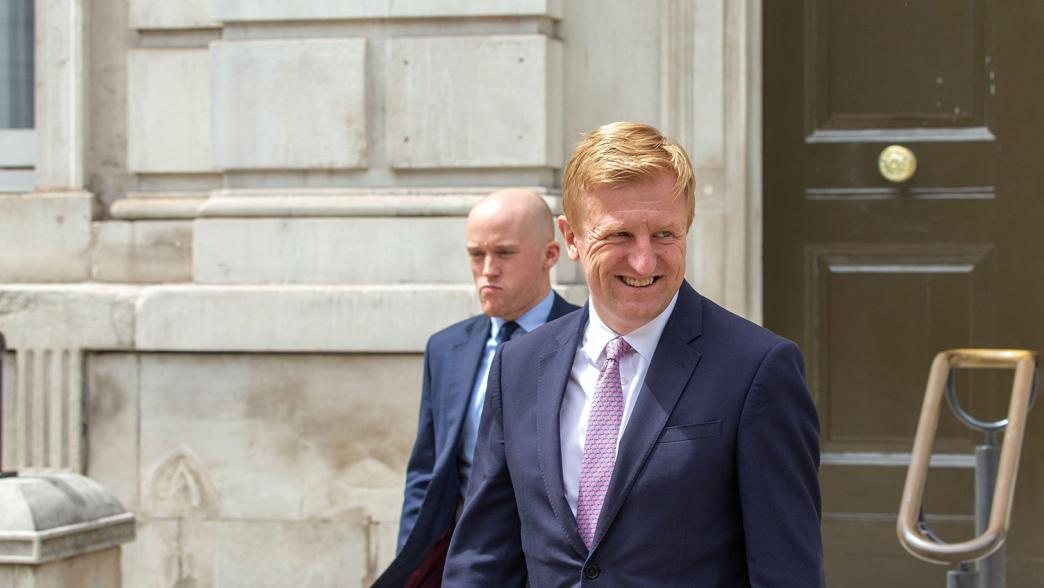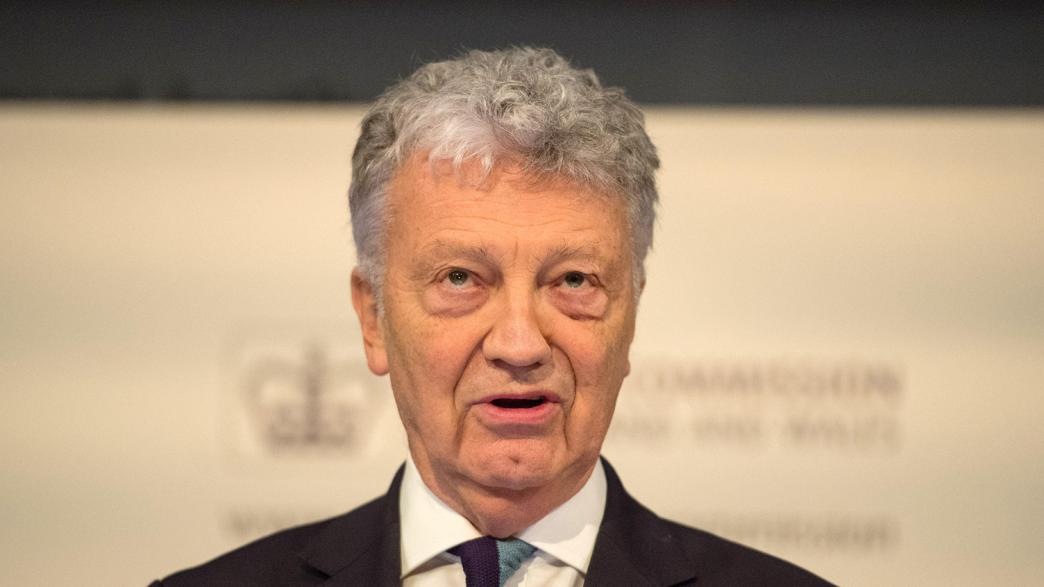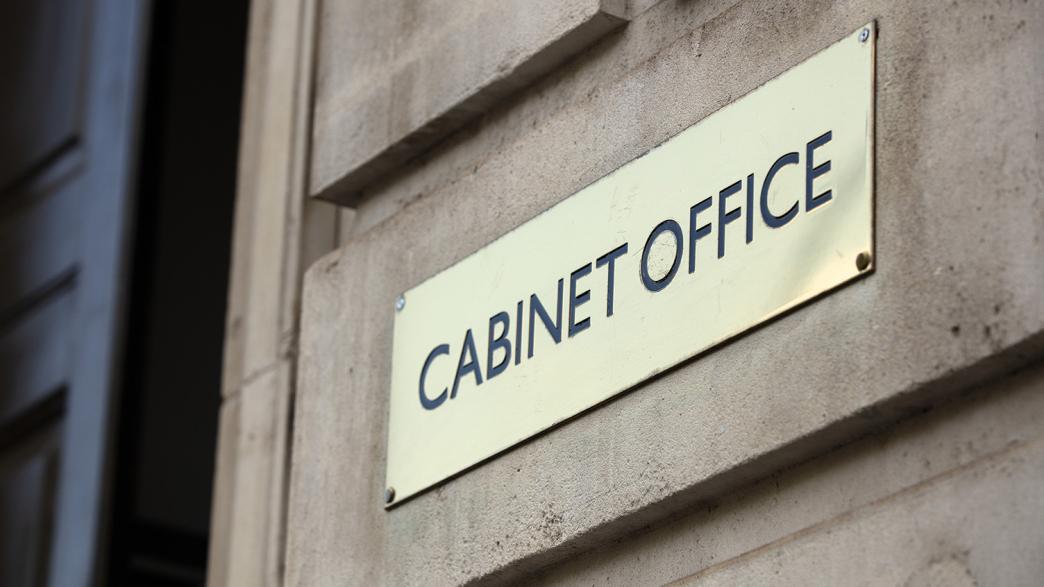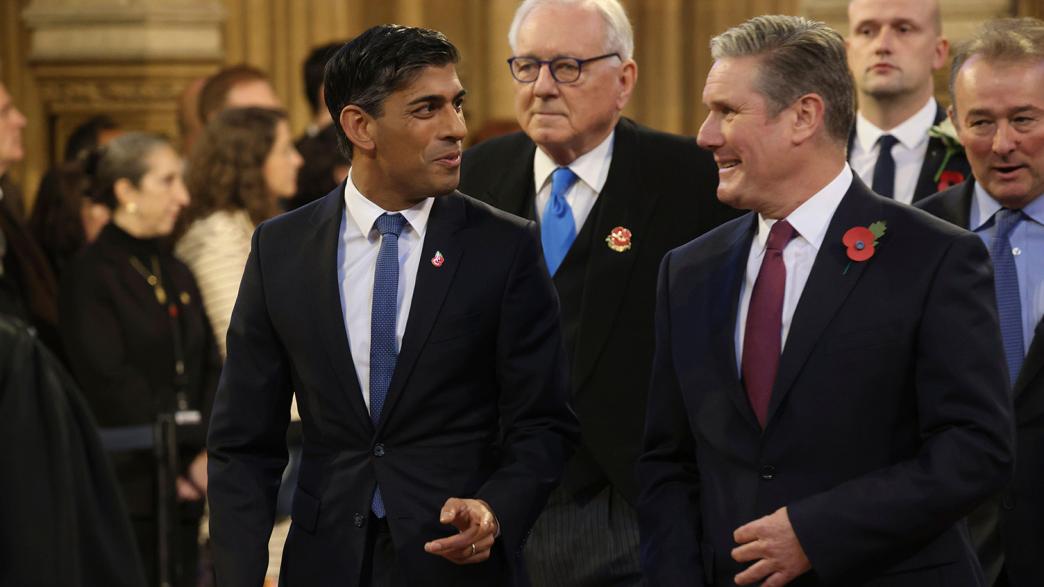Public appointments in 2023: What has changed – and what still needs to?
There has been some promising progress in improving the public appointments system, but it remains vulnerable to abuse.

Introduction
In August 2022 the Institute for Government published Reforming Public Appointments, which dissected the public appointments process and offered recommendations for how it could be improved. We looked at various problems that have beset the system in recent years, including the length of time it takes for government to choose and appoint candidates, especially to key positions, and the flaws in the process by which political input is reconciled with merit-based assessment and independent regulation. We found much scope for improvement: the report made 50 recommendations for reform.
In particular, we suggested government should: regulate all appointments made by ministers, with only limited exceptions; appoint a chief talent officer to improve candidate care and outreach; remove ministers’ ability to appoint a candidate judged ‘unappointable’ by interview panels; and collect and publish aggregated data on the causes of appointment delays.
Fifteen months on from that report, much has changed. There have been two changes of prime minister. The political staff in No.10, who play a large role in the appointments system, are different too. The government has also finally issued its response to three key official reports on standards and ethics, 34 Cabinet Office, Strengthening Ethics and Integrity in Central Government, CP 900, The Stationery Office, 20 July 2023, www.gov.uk/government/publications/strengthening-ethics-and-integrity-in-central-government from the Committee on Standards in Public Life (CSPL), 35 Committee on Standards in Public Life, Upholding Standards in Public Life Final report of the Standards Matter 2 review, Gov.uk, 1 November 2021, www.gov.uk/government/publications/upholding-standards-in-public-life-published-report the House of Commons Public Administration and Constitutional Affairs Committee (PACAC), 36 //committees.parliament.uk/publications/31830/documents/178915/default and the Boardman review of propriety after the Greensill scandal. 37 Boardman N, A review into the development and use of Supply Chain Finance in government, Gov.uk, 5 August 2021, www.gov.uk/government/publications/findings-of-a-review-into-the-development-and-use-of-supply-chain-finance-in-government
The government’s response announced several changes to the public appointments system – specifically, to the governance code on public appointments
38
Cabinet Office, Governance Code on Public Appointments, Gov.uk, last updated 24 July 2023, www.gov.uk/government/publications/governance-code-for-public-appointments
– but also pushed back on some of the recommendations, many of which were also made by the IfG and others. This short paper looks at what has changed, and what in our view still needs to change.
The government has made some important improvements to the system
The reforms made by the government are welcome, as is the fact that it has responded to these reports at all – albeit over two years after the CSPL’s initial findings were first published. 40 Committee Findings, Gov.uk, June 2021, www.gov.uk/government/publications/standards-matter-2-the-committees-findings Among the reforms is a commitment to appoint departmental non-executive directors (NEDs) via the public appointments system, regulated by the commissioner for public appointments. This is something the IfG recommended in 2021, given the influential nature of these roles.
The response also included a commitment to publish, annually, a full list of so-called ‘direct appointments’ – non-statutory ministerial appointments that include temporary ‘tsars’ like the heads of NHS Test and Trace and the Vaccine Taskforce during the pandemic, or high-profile advisory roles like the commissioner for cultural recovery and renewal. The government was criticised for appointing people to these roles without a clear or transparent appointment process, but now intends to publish a full list of these roles and the current office holders, as well as guidance on how such appointments should be conducted and terms of reference for those appointed. This list should allow for scrutiny of roles that are directly appointed, who is given them, and why the government appointed them directly rather than through the regulated process. It should also improve departments’ own central understanding of the non-regulated appointments their ministers have made.

The government's response to the CSPL's report on ethical standards announced several changes to the public appointments system – specifically, to the governance code on public appointments.
The Sunak government has set a better tone
While these reforms to the governance code on public appointments 43 Cabinet Office, Governance Code on Public Appointments, Gov.uk, last updated 24 July 2023, www.gov.uk/government/publications/governance-code-for-public-appointments are significant, the government’s attitude to appointments is just as important. Ministers set the tone on how the government approaches its public appointments, and how those administering the system make decisions.
There has been progress in the past year. The Sunak government has moved away from the more combative approach of the Johnson era. There has been no pre-briefing in favour of preferred candidates, fewer complaints than in previous years, 44 //publicappointmentscommissioner.independent.gov.uk/complaints and a more positive tone of engagement between government and the commissioner. While some of this may be down to the appointment of William Shawcross as commissioner, who is seen to be closely aligned with the current administration, it is also hopefully a sign that ministers are committed to respecting the role he holds.

Oliver Dowden, now the minister at the Cabinet Office responsible for public appointments, has plenty of experience with the system, having been secretary of state in one of the most appointment-heavy departments, DCMS, as well as serving in the Cabinet Office previously. Baroness Neville-Rolfe, who leads on appointments reform in the Cabinet Office, has extensive private sector board experience and seems to be focused on reducing delays and improving candidate care – the two biggest barriers we identified to getting high-quality and diverse candidates into these jobs – including through problem-solving workshops involving the key players in the appointments system. Central political commitment to the appointments system is crucial to improving things, so this development is especially welcome.
But the appointments system’s coverage remains inconsistent…
Despite some promising signs and some improvements to the rules, the appointments system still suffers from many of the problems we identified last year.
Chief among these is its scope. The list of regulated appointments is set out in a statutory order in council, 47 //papt-publicly-accessible-docs.s3.eu-west-2.amazonaws.com/Public-Appointments-Order-in-Council.pdf, pp. 3–10. a type of secondary legislation issued by the privy council, updated in 2023. But despite the welcome inclusion of departmental NEDs, conspicuous absences remain. As well as direct appointments, most of which are unregulated, these include board members of executive agencies, like the UK Health Security Agency or Companies House, who are appointed by ministers but without regulation (albeit that they often follow the regulated process in practice).

This does not make sense. Regulation is relatively light touch and does not impose significant restrictions on whom ministers appoint – it simply requires the process to be open and fair, and the candidate to be of sufficient merit to be ‘appointable’.
48
Cabinet Office, Governance Code on Public Appointments, Gov.uk, last updated 24 July 2023, www.gov.uk/government/publications/governance-code-for-public-appointments
Many of these excluded roles are not only important but also well paid. The government needs to set out more clearly the criteria for when a job is regulated – for instance, that it is paid over a certain threshold or involves a certain term length – and stick to it. And a list of all appointments that remain unregulated, not just the subset referred to as direct appointments, should be published (it is not clear whether this is government’s intention or not).
Reforming public appointments
How the PM can make public appointments faster and fairer, by reforming an often chaotic public appointments process.
Read the report
… and the system remains fragile
In addition to its patchy coverage, the appointments system has various other problems that have not been fully addressed. One is the status of the commissioner, whose office and rights could be changed or even rescinded by the government without reference to parliament because they are currently set out in an order in council. Recommendations from the IfG, CSPL and PACAC to change this have been rejected by the government, but the Labour Party does seem committed to a statutory ethics regulator, which, if it mirrored the Scottish system, would include appointments regulation.
Public appointments may seem less politically charged than a year ago, but the Johnson administration demonstrated that they are vulnerable to a more interventionist approach. Tactics pursued by Johnson’s ministers – such as the packing of interview panels with political members and the use of extensive social media checks or signed statements of agreement with government policy to rule out candidates with undesirable political views – could still be adopted by a future government. A stronger statutory position would strengthen the commissioner’s ability to resist executive overreach in practice as these issues arise, while also ensuring that any major modification to the role had to be agreed by parliament.
As well as rejecting the recommendation for a stronger statutory footing, the government has also rejected other recommendations aimed at increasing the powers of the commissioner to observe and regulate the system. These range from a duty for departments to consult the commissioner on panel composition for significant appointments to additional powers for select committees to approve candidates to key constitutional positions. With regard to keeping the commissioner informed on the conduct of significant appointments – as again recommended by the IfG, CSPL and PACAC – the government argues that this is already an expectation in the model individual letter to senior independent panel members annexed to the governance code. But in fact that letter only anticipates communication about issues not resolvable at departmental level, rather than as a matter of routine.
The government has committed to rewording the guidance to say that ministers should write to the relevant select committee when they appoint a candidate found ‘unappointable’ by an advisory assessment panel, and appear before the select committee to justify their decision. While we would still recommend that the right to appoint an unappointable candidate should be removed from the code altogether, this is a welcome commitment, as select committees have an important role to play in the scrutiny process.
We assume this commitment is intended to be additional to the existing duty to inform the commissioner in advance if a minister plans to appoint someone deemed unappointable. It is important that this existing duty is also retained as it allows the commissioner time to persuade ministers that such an appointment is unwise, and to prepare a public response should the appointment go ahead. Although, partly as a result, no unappointable candidate has ever been given a job.
Good administration is as important as ethics
Beyond the governance code and the behaviour of ministers, many of the issues with the public appointments process are primarily administrative. Delays are a major problem, as the Cabinet Office acknowledges internally, and not a new one – a key aim of the last set of reforms to the public appointments process, the Grimstone review of 2016, was to improve timeliness. 53 A Review of the Public Appointments Process, Gov.uk, March 2016, www.gov.uk/government/publications/better-public-appointments-review-of-the-public-appointments-process, pp. 22–3. Delays matter because they put off good candidates and can lead to a lack of continuity in senior roles, with gaps having to be filled on a temporary basis. The causes of delays have a political element – interventions from ministers and special advisers often slow down the appointments process – but they also result from failures to administer the appointments system efficiently, gather the right data on what is going wrong and address problems at a departmental and cross-departmental level. Improving these processes was a major focus of our report last year.
The Cabinet Office has significantly improved the public appointments website, 54 //apply-for-public-appointment.service.gov.uk/roles making it more standardised and accessible. All campaigns should now appear on it, although the information published on when decisions are made and who panellists are remains patchy. It also now hosts a ‘future opportunities pool’, which should help departments share information on promising candidates, and the data collected is being used to generate a forward view of upcoming appointments (which was previously a resource-intensive manual process). Adoption by departments will be key and the Cabinet Office is working to help departments use the website to improve their forward planning and to run recruitment campaigns more efficiently.
The Cabinet Office is also starting to analyse aggregate data on appointments; for instance, to find out the causes of delays. There are aspirations to publish richer aggregate data on timeliness in appointments, when the data has been fully developed and tested – although this will depend on data quality, resourcing and ministerial approval. This would be welcome and should be prioritised: it was a key recommendation of our report last year, and something the Scottish government, for example, has been doing for some time. 55 Commissioner for Ethical Standards in Public Life in Scotland, Annual Report on Public Appointments 2021/22, 31 October 2022, www.ethicalstandards.org.uk/publication/public-appointments-annual-report-202122, pp. 19–21.

This data should be as granular as possible in order to identify the underlying causes of delays. At present, there is still debate within the system as to the main causes, and the only information available publicly is a list of exceptional appointments, usually made to fill gaps left by delayed appointments, 56 //publicappointmentscommissioner.independent.gov.uk/regulating-appointments/exceptional-appointments which is often updated with a considerable time lag on the commissioner’s website. Government needs better internal data and the public deserves more clarity on how the system is being administered, and how significant delays really are.
Alongside establishing the causes of delays and addressing them, it remains important for central teams to co-ordinate public appointments processes in departments, with input from sponsor teams as appropriate. We also recommended training for special advisers on how the appointments process is intended to work, streamlining the involvement of the Cabinet Office and No.10 (where we understand some progress has been made), and redefining the three-month ‘aspiration’ for the time between applications closing and an appointee being announced so that it concludes when an appointment is offered – this would then be sufficiently realistic to be treated as an enforceable target.
Our report also proposed that a government chief talent officer could strengthen cross-government talent development and outreach, support the commissioning of headhunters where necessary, and share best practice across departments. The Cabinet Office public appointments team is doing important work in these areas but a senior leader would be better able to achieve the required change. We also made a range of specific recommendations on how to attract the best people – including on remuneration, term length, personal liability and remote working – which still stand.
The general election might have a big effect on the appointments system
The other factor hanging over the reforms made by the current government – and the appointments system more generally – is the prospect of a general election, expected in 2024. Elections change the political dynamics of the appointments process. Ministers who fear losing their place in government may be keen to rush through appointments to entrench supporters in key roles, while a Labour-led government, should one be voted in, might want to appoint its own supporters through the same system. These twin forces undermine those currently in post and decrease stability at the top of important organisations.

The election may also change the prospects for reform. Will the government be tempted to restrict political involvement in the system, in an effort to tie the hands of their potential successors? And will either party make any commitments on appointments in their manifestos? Ethics was a major pre-occupation of Labour’s deputy leader, Angela Rayner, when she was shadow Cabinet Office minister, but now she has been replaced by Pat McFadden in that role, and with Boris Johnson having left government more than a year ago, the issue may not remain such a priority for the Labour Party.
It is important that both Keir Starmer and Rishi Sunak set out their stalls on appointments before the election. In particular, Starmer should clarify whether or not he intends to further reform the appointments process, and whether he would include appointments in the scope of the combined ethics commission his party has committed to. The IfG would welcome a move to place appointments on a clearer statutory footing. For his part, the prime minister should set out his own longer term vision for standards reform generally, including public appointments, to build more concretely on the tone he has set.

Elections change the political dynamics of the appointments process. The next election is due to be held no later than the 28 January 2025.
Conclusion
In the 15 months since we published Reforming Public Appointments there has been some promising progress in improving the appointments system, but it remains vulnerable to abuse, it is too slow and it affords limited accountability when things go wrong. Government should not rest on its laurels after the changes made so far, but push forward to further improve the system. There should be more public clarity on both parties’ plans for the appointments system before the election, both to help civil servants prepare and to ensure electoral scrutiny of what politicians want to do.
Table 1: How did the government respond to key recommendations made by CSPL, PACAC and Boardman?
| Who made the recommendation? | What did it say? | What is the government response? |
| CSPL, PACAC | Ministers should not appoint those deemed unappointable by an assessment panel – if they do, they must appear in front of the relevant select committee to justify their decision. | The government accepts this recommendation, saying that “should such an appointment occur, ministers will be obliged to write to their select committee and appear before it if requested by the select committee chair”. The government also notes that no such appointments have been made in recent years. |
| CSPL | Ministers must consult the commissioner for public appointments on the make-up of the whole panel for significant appointments. | The government rejects this recommendation, arguing that the “current process for significant public appointments is properly constituted” as ministers have to consult the commissioner on their choice of the senior independent panel member. |
| CSPL, PACAC | Senior independent panel members for appointments should report to the commissioner on the conduct of significant appointment processes. | The government argues no change is necessary here, as this recommendation is already fulfilled by the model letter for senior independent panel members, which sets out their duties during an appointment process. |
| CSPL | Non-executive directors for government departments should be regulated in the same way as public appointments. | The government accepts this recommendation, as the commissioner for public appointments, William Shawcross, confirmed in a letter of January 2023. |
| CSPL, PACAC | The government should pass primary legislation to place the public appointments commissioner on a clearer statutory basis. | The government rejects this recommendation, stating that it does not believe these regulators or their codes should be established in legislation. The government argues that “the position between the executive and parliament in relation to these scrutiny bodies is carefully balanced… placing scrutiny bodies into primary legislation risks drawing the courts into political matters that are the sole purview of the government”. |
| CSPL, PACAC, Boardman | The government should publish more information about direct ministerial appointments (also called government tsars), and the letters setting out their role should be shared with the relevant select committee. | The government accepts this recommendation, committing to publishing an annual list of direct ministerial appointments, their terms of reference and guidance on the process for such appointments. Exemptions will be in place for sensitive roles. The commitment does not, however, extend to publishing details of all unregulated appointments, as recommended by CSPL. |
| PACAC | Ministers’ candidates for chairs of the ethics watchdogs should be endorsed by the relevant select committee. | The government rejects this recommendation, saying it “does not believe that these appointments require an extra layer of independent oversight” compared to the chairs of other high-profile regulators and bodies. But the government does accept the need for sufficient time for pre-appointment scrutiny. |
| CSPL | Chairs of standards committees, such as CSPL itself or the House of Lords Appointments Committee, should chair assessment panels for the appointment of their independent members. | The government accepts this recommendation, and will revise panel guidance to reflect this. |
- Topic
- Public bodies Regulation
- Political party
- Conservative
- Administration
- Sunak government
- Department
- Cabinet Office
- Public figures
- Rishi Sunak
- Publisher
- Institute for Government